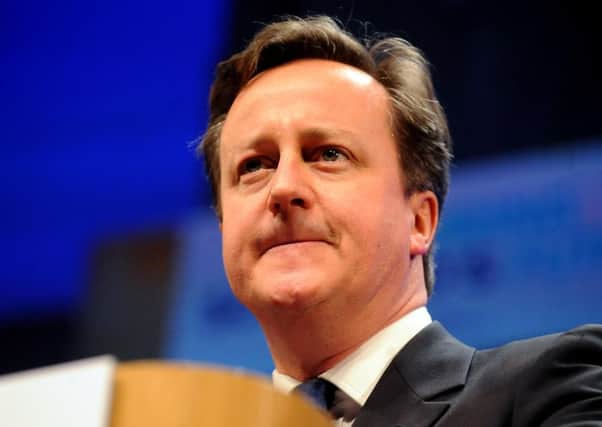Leader comment: PM's Panama Papers mistake | Exercise caution with calorie-counting


He should have known better, of course. As prime minister, his business is open to public scrutiny, and this loss of privacy goes with the territory of holding such high public office. That’s not to say that every aspect of his life is fair game, but financial arrangements are bound to come under the microscope, especially for someone who has previously backed measures to crack down on tax evasion.
This wrong call also created a new problem for Mr Cameron, because his ill-advised attempt to close down the story by citing privacy only strengthened the suspicions of those who believed he had something to hide. As a result, the Prime Minister has been under intense attack from his political opponents who are demanding to see Mr Cameron’s tax affairs put into the public domain. Four statements from Downing Street have failed to put the matter to rest.
Advertisement
Hide AdAdvertisement
Hide AdAt this stage, we can only take Mr Cameron at his word when he says that he has no shares or income from offshore trusts. But that is not enough for some of his critics, who sense guilt by association through the Prime Minister’s late father, Ian, who helped set up an off-shore fund for investors.
Is it fair to damn a person for the conduct of their father? It seems even less reasonable to do this than it is to hold parents responsible for the behaviour of their adult children.
And should we be so surprised that the Prime Minister may have, in some way in the past, benefited from his father’s financial affairs? How else were those Eton fees paid? The Prime Minister comes from a privileged background, and it is inevitable his father would have been able to afford advice on how to reduce his exposure to tax. Does that entitle us to assign culpability to Mr Cameron? And what we must also not forget is that there is no evidence Ian Cameron has done anything illegal.
The difficulty for the Prime Minister, however, is that although his father’s dealings exposed by the Panama Papers are legal, that does not make them acceptable, and Mr Cameron has told us that tax is a moral issue. He should realise most observers would consider that hiding money offshore to keep for yourself what would otherwise have been owed to the public purse is morally wrong.
Labour leader Jeremy Corbyn has had no qualms about putting his own tax returns up for public scrutiny, and wants his opponent to do the same. He is right to ask questions of what is going on, because as we have already seen this week, some national leaders have a case to answer in the wake of the leak.
To clear up this matter, Mr Cameron has only one option. He has no legal duty to reveal his annual returns, but if he believes that tax is a question of morality – a subjective matter, granted – then he has a moral obligation to demonstrate the transparency of his affairs. Until he does that, the suspicion that he has something to hide will remain, whether justified or not.
Exercise calorie count worth consideration
In the fight against obesity, we are always looking for new ways to help educate the public about healthy eating, so a suggestion that food packets should carry information on how much exercise is needed to burn off the calories consumed in the product is worth consideration.
It can be a sobering experience to spend a tough half an hour on a gym treadmill and then find that the monitor reckons the amount of calories burned off during the session is barely equivalent to one yoghurt.
Advertisement
Hide AdAdvertisement
Hide AdHowever, attempting to equate calories with exercise is an inexact science, and will create further uncertainty in an area where what we really need is clarity. There are too many variables for this proposal to work, because the effects of exercise are determined by factors such as age, weight, fitness and metabolic rate. We are all different – and let’s face it, many of us don’t even find time to exercise.
There is also a lack of knowledge about how we burn off calories. This process happens when we are sedentary, and when we are asleep. Calories give us the energy we need, and we have to hang on to some of them if we are to operate properly. It is misleading to give people the impression that they have to ‘earn’ their total calorie intake.
It would be better to improve the current method of flagging up each food product’s calorie count, and for a start, doing away with the red herring that states how many calories are contained within a 100g portion of a product, when in many cases – a snack, for instance – the only relevant figure is the total number of calories consumed.
A healthy diet and regular exercise provide the key to good health, but measuring one against the other will only cause confusion.